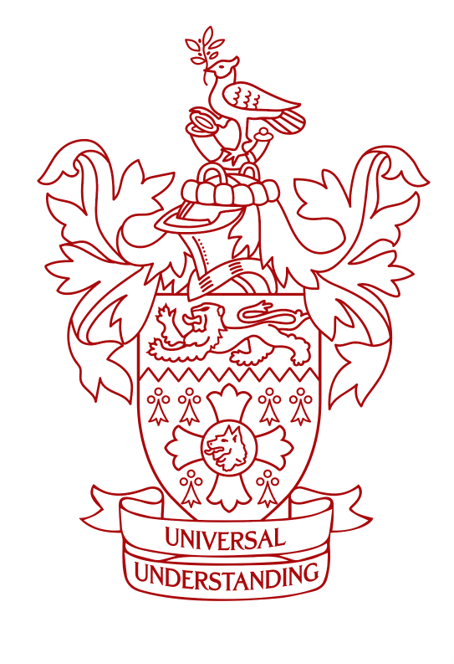CIOL Translators Day 2025
Susie Dent - In conversation
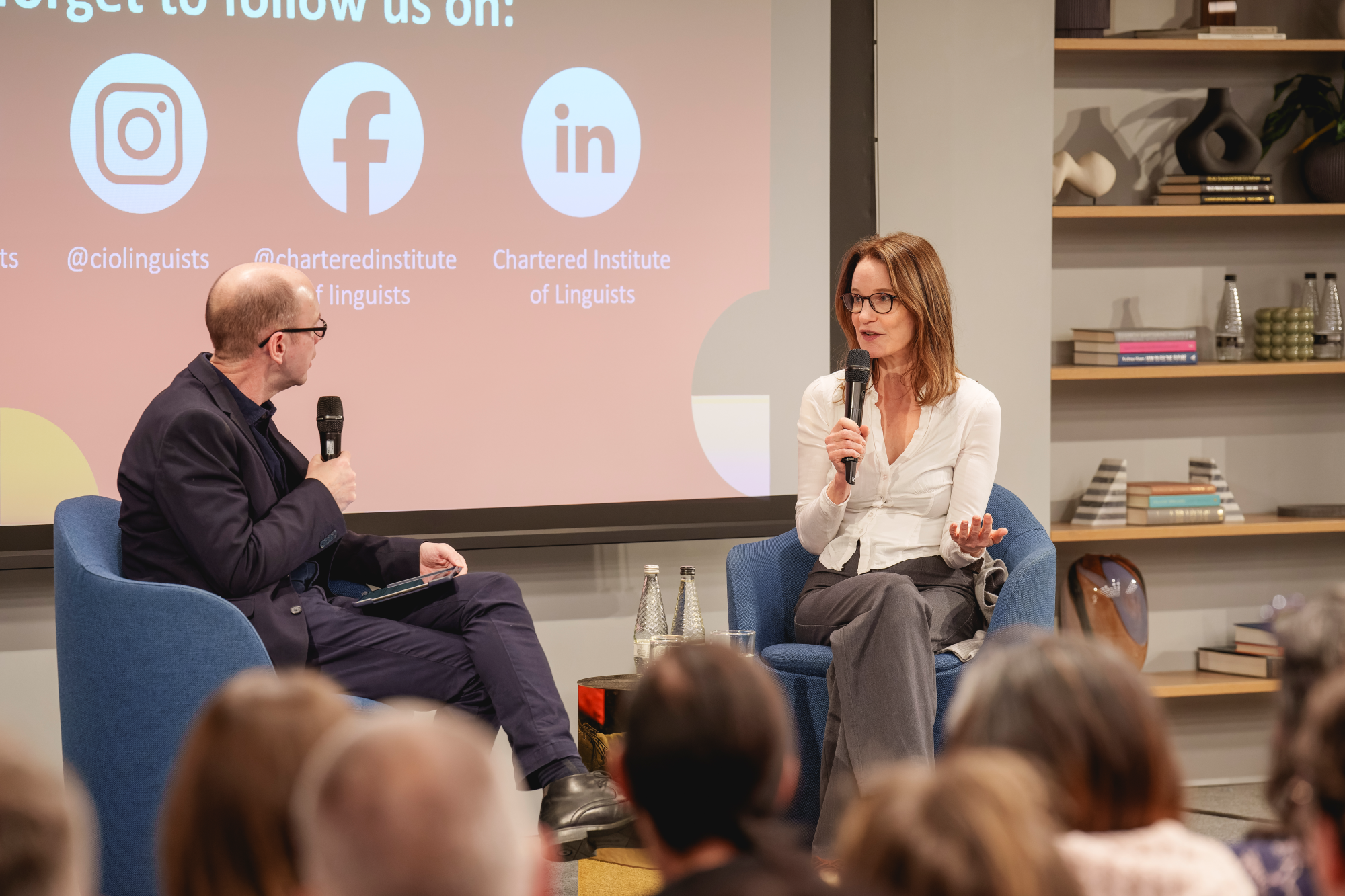 Lexicographer, linguist, etymolygist, bestselling author, broadcaster, 'Queen of Dictionary Corner', HonFCIL and CIOL Vice-President, Susie's conference presentation was a Q&A with John Worne: ‘In conversation with Susie Dent - life as a linguist, lexicographer and word detective’.
Lexicographer, linguist, etymolygist, bestselling author, broadcaster, 'Queen of Dictionary Corner', HonFCIL and CIOL Vice-President, Susie's conference presentation was a Q&A with John Worne: ‘In conversation with Susie Dent - life as a linguist, lexicographer and word detective’.
In this session we learned how Susie first got interested in languages (she speaks French and German), how words get into the Oxford English Dictionary, the inspiration for her new novel, and spoke about the persistent negative slant in terms which undermine women's voices and how 'fakespeare' which particularly tickled Amanda Clement on LinkedIn is the reminder that "not all which is uttered that doth sound of the Bard" actually "cometh of his pen".
Stephanie Martinez-Hill also celebrated some of Susie's favourite words, which she shared on LinkedIn:
"...hingum-tringum (feeling barely presentable and just about hanging together), whiffling (fickle, inconstant, and making it up as you go along) and recrudescence (the recurrence of an undesirable condition). Safe to say, if a certain individual or event springs to mind for her word of the day, it was probably no accident! On a more positive note, there was respair - fresh hope, recovery from despair."
Steve Doswell & Dom Hebblethwaite - Facts, Stats and CIOL Member Voices
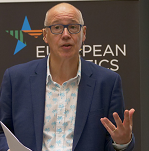
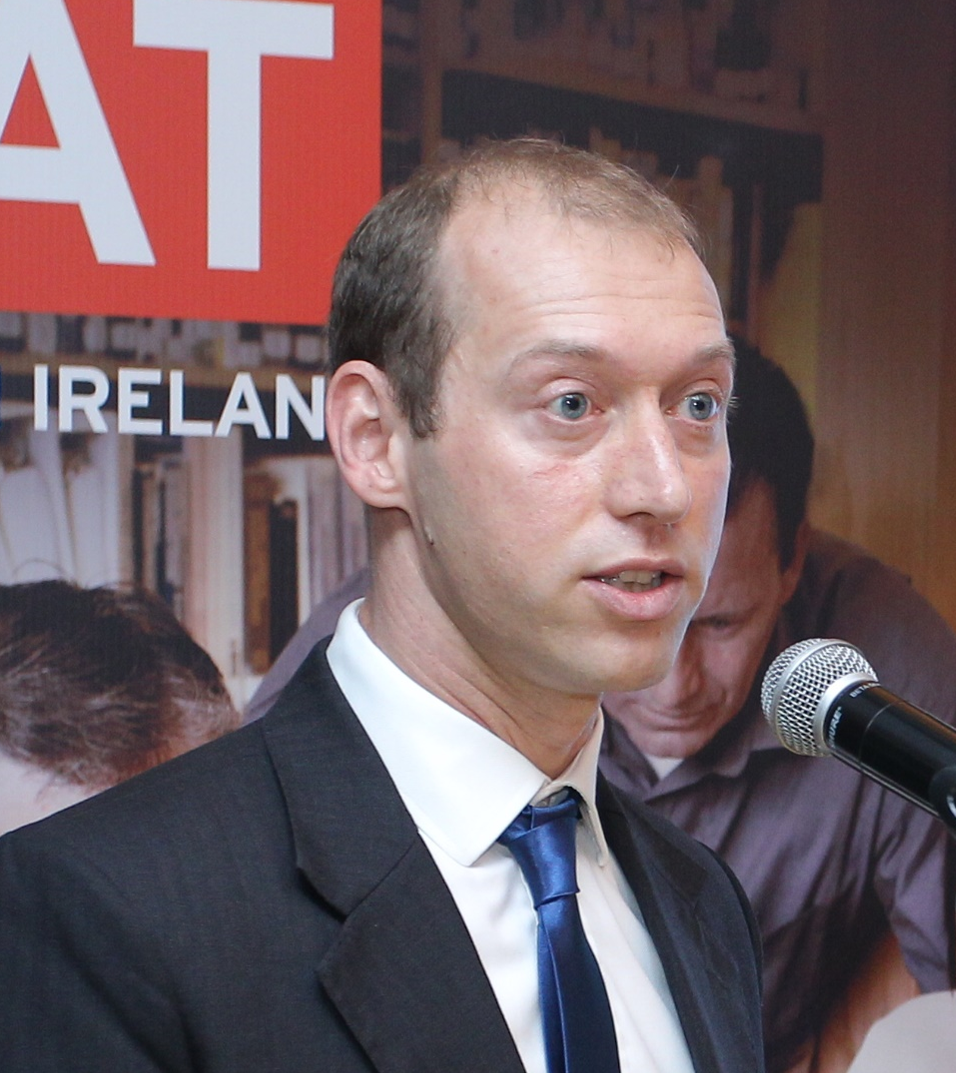 In the opening presentation, CIOL Chair Steve Doswell and CIOL Head of Membership Dom Hebblethwaite checked in on the audience's views of AI's impact on workloads and compared this with other recent polls and surveys.
In the opening presentation, CIOL Chair Steve Doswell and CIOL Head of Membership Dom Hebblethwaite checked in on the audience's views of AI's impact on workloads and compared this with other recent polls and surveys.
Translators in the room were generally more positive than the wider profession.
Steve and Dom then discussed AI, specialisation, adapatation, private client work wider and changes in the language professions and industry.
See their slides here.
Stella Hodkin - Chief Language Service Officer at CLEAR Global / Translators without Borders
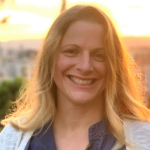
Of the world’s over 7,000 languages, only a handful are meaningfully online. As language technology evolves, low-resource languages are getting left behind, creating an ever increasing digital language divide. CLEAR Global, together with the support of the Translators without Borders Community, is working hard to ensure people can get vital information and be heard, whatever language they speak.
In this session, Stella provided an overview of community efforts and collaborative initiatives to build datasets and develop language technology for speakers of marginalised languages. She shared specific scenarios in which language technology is combined with the skills of language professionals to deliver information that can save lives. See Stella's presentation here.
Stella Hodkin is a language service industry expert with an unwavering passion for languages and a profound belief in the transformative power of global communication. With over 20 years of experience in the language service industry, Stella has held a variety of roles, working as both a freelance and in-house translator, before transitioning to management roles within global language service providers.
In 2018, Stella joined the Leadership Team at CLEAR Global (formerly Translators without Borders), and today coordinates the Language Services Team. In this capacity, Stella leads a team dedicated to providing life-changing and potentially life-saving information in accessible language formats, leveraging TWB's community-based model to provide NGO partners with essential language services and support.
Ilenia Goffredo - Combining the best of human intuition and digital tools to evolve as a ‘Next-Gen’ language expert
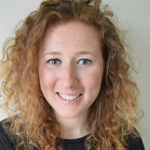
In her presentation, Ilenia explored the evolving role of language experts and the importance of fostering a community of linguists that continues to uphold human values, ethics, and cultural understanding in their work.
She covered, reshaping the role of language experts in a rapidly changing industry, adaptive learning skills and the ability to constantly upskill, creativity and emotional intelligence and specialisation in niche domains and high-value work.
See Ilena's presentation here.
Ilenia Goffredo is the co-founder and managing director of LingBox (www.lingbox.co.uk), a London-based translation agency providing businesses with translation services in multiple languages. With over 10 years' experience in the translation industry, she has also been working as a professional English-Italian interpreter and translator specialised in marketing & advertising, business, market research and fashion, including a role as a Senior sub-editor for a global platform for luxury fashion.
Along with being an active member of the Chartered Institute of Linguists and an associate of the Institute of Translation & Interpreting, she holds a Master’s degree in Interpreting (Conference and PSI) and a Bachelor’s degree in Translation and Liaison Interpreting.
Rebecca Nicholls - Plot twist! The TV and film industry's big shake-up: a guide for translators
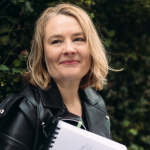
Rebecca offered an insight packed guide to navigating the TV and film industry, and some context for translators working within it.
2024 has been an annus horribilis for the TV industry, with the hashtag #SurviveTo25 trending as freelancers share stories of taking temp work in bars and shops to make ends meet. It has been a challenging time, which impacts the commercial environment that translators are pitching into. AI has proven just as controversial in TV and film, with the concerns of creatives and translators intersecting in some areas, and diverging in others. The session also helped decode the language of TV and film, from industry jargon to understanding the client’s perspective, equipping translators with the insights needed to market effectively to this industry.
See Rebecca's presentation here.
Rebecca Nicholls has worked in film and television for over twenty years, working with broadcasters and producers all over the world. After a BA in French from the University of Durham, Rebecca won a scholarship to QUT in Australia, where she gained a post-graduate level diploma in Film & Television Production. She worked at Channel Nine in Australia, before returning to Europe to work in international film distribution in London and Paris. She now specialises in the translation and distribution of French-language documentaries into English-speaking markets, with a particular interest in films about human rights and environmental issues.
Nisreen Alzaraee - Translation at the British Library: Conscientious Bilingual Description
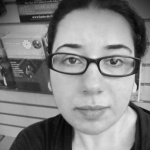 The British Library has been working in partnership with Qatar Foundation/Qatar National Library to digitise archival material related to the history of the Gulf. Records in these historical collections often originate from colonial administrations, and dealing with them in translation raises a variety of ethical as well as practical questions.
The British Library has been working in partnership with Qatar Foundation/Qatar National Library to digitise archival material related to the history of the Gulf. Records in these historical collections often originate from colonial administrations, and dealing with them in translation raises a variety of ethical as well as practical questions.
Nisreen Alzaraee spoke about the work of the project’s in-house Arabic translation team and the bilingual treatment of colonial and imperialist language. See Nisreen's presentation here.
Nisreen Alzaraee is an Arabic Translator for the British Library/Qatar Foundation Partnership (BLQFP) Programme. She holds a master’s degree in postcolonial studies and has years of experience in discourse analysis and political and developmental research.
Vasiliki Prestidge - Finders keepers: finding and keeping amazing clients
 Vasiliki Prestidge is a translator, interpreter, transcreator, blogger, consultant and director of Greek to Me Translations Ltd. She works with English, Greek and French primarily and her team covers other language combinations. Services facilitate the business operations of the legal, creative, marketing & advertising, fashion and media industries across the UK, Greece, and Cyprus. Her presentation covered marketing, strategy, networking, mindset and managing high quality client communications both on and offline.
Vasiliki Prestidge is a translator, interpreter, transcreator, blogger, consultant and director of Greek to Me Translations Ltd. She works with English, Greek and French primarily and her team covers other language combinations. Services facilitate the business operations of the legal, creative, marketing & advertising, fashion and media industries across the UK, Greece, and Cyprus. Her presentation covered marketing, strategy, networking, mindset and managing high quality client communications both on and offline.
See Vasiliki's presention here.
Vasiliki is a Chartered Linguist, member of the Chartered Institute of Linguists (CIOL), the Institute of Translation and Interpreting (ITI). She is registered with the Greek Consular Authorities in the United Kingdom as a certified translator and interpreter. She holds a BA in English Language and Linguistics and Masters in Business Translation and Interpreting. As a member of CIOL Council she oversees and supports the organisations' strategic goals.
She is a Lecturer in Legal Translation and Languages at the School of Business and Law, London Metropolitan University. Her mission is to help organisations and individuals achieve their goals through the power of words. Through The Translators Mentor, Vasiliki helps aspiring or young translators to overcome self-limiting beliefs, build a business mindset and achieve their highest potential. You can follow her on LinkedIn, Facebook, Twitter and Instagram.
CIOL Council Panel - Navigating Change in the Language Profession
 The final session of Translators Day 2025 featured a panel of CIOL Council Members discussing the day and the evolving landscape of the language industry, particularly focusing on the impact of AI and machine translation and the enduring value of professional linguists.
The final session of Translators Day 2025 featured a panel of CIOL Council Members discussing the day and the evolving landscape of the language industry, particularly focusing on the impact of AI and machine translation and the enduring value of professional linguists.
Steve Doswell, Chair of CIOL Council, was joined by CIOL Council members Dr Mariam Aboelezz, Vasiliki Prestidge, Anita van Adelsbergen (Vice Chair of CIOL Council) and Dom Hebblethwaite.
Despite the challenges posed by advancing technology, the panel expressed optimism about the profession's future. They encouraged translators to embrace their unique roles as ‘cultural bridges’ and to continue developing their skills, including in technology, platforms and AI, in an ever-evolving industry.
Presentations from CIOL Translators Day 2024 are available here
CIOL Interpreters Day 2025 Presentations
John Worne - Introduction to the Day
John Worne welcomed everyone to CIOL Interpreters Day with these introductory remarks:
"Many people in this room will use their languages in a variety of contexts. But I think all of us will share a common concern about the recognition and value placed on Public Service Interpreters in the UK.
You’ll hear later from our PSI Panel on the case we made for appropriate qualifications, relevant experience and recognition of the high standards of professionalism embodied by Public Service Interpreters in the House of Lords inquiry into Interpreting and Translation services in the Courts.
Whilst progress under successive Governments has sometimes proven hard to achieve, the family of languages stakeholders continues our advocacy and work with government and public services across the UK, to raise awareness of the issues Public Service Interpreters face. And we will continue to advocate for qualifications, increased professional recognition and better rates for interpreters - as well as supporting and encouraging people into interpreting to grow and develop the profession to support this absolutely vital work.
Perhaps inevitably, I’ve started out with the UK and Public Service Interpreting – it is such an important part of our history and our current work. But there is a whole world of work and opportunity in interpreting and the spoken word, and today we’ll hear about:
1) How to build your own online presence and ‘brand’
2) Important research findings and insights into the potential uses for interpreters, and some of the risks with technology, and
3) The many different ways spoken word linguists can, and do, use their skills.
And this is what languages and linguists are all about really, isn’t it – creating human connection. So, thank you all for coming into London to be with us."
Michelle Deeter MCIL - Maximising your impact: how interpreters can create engaging content for LinkedIn, YouTube and beyond
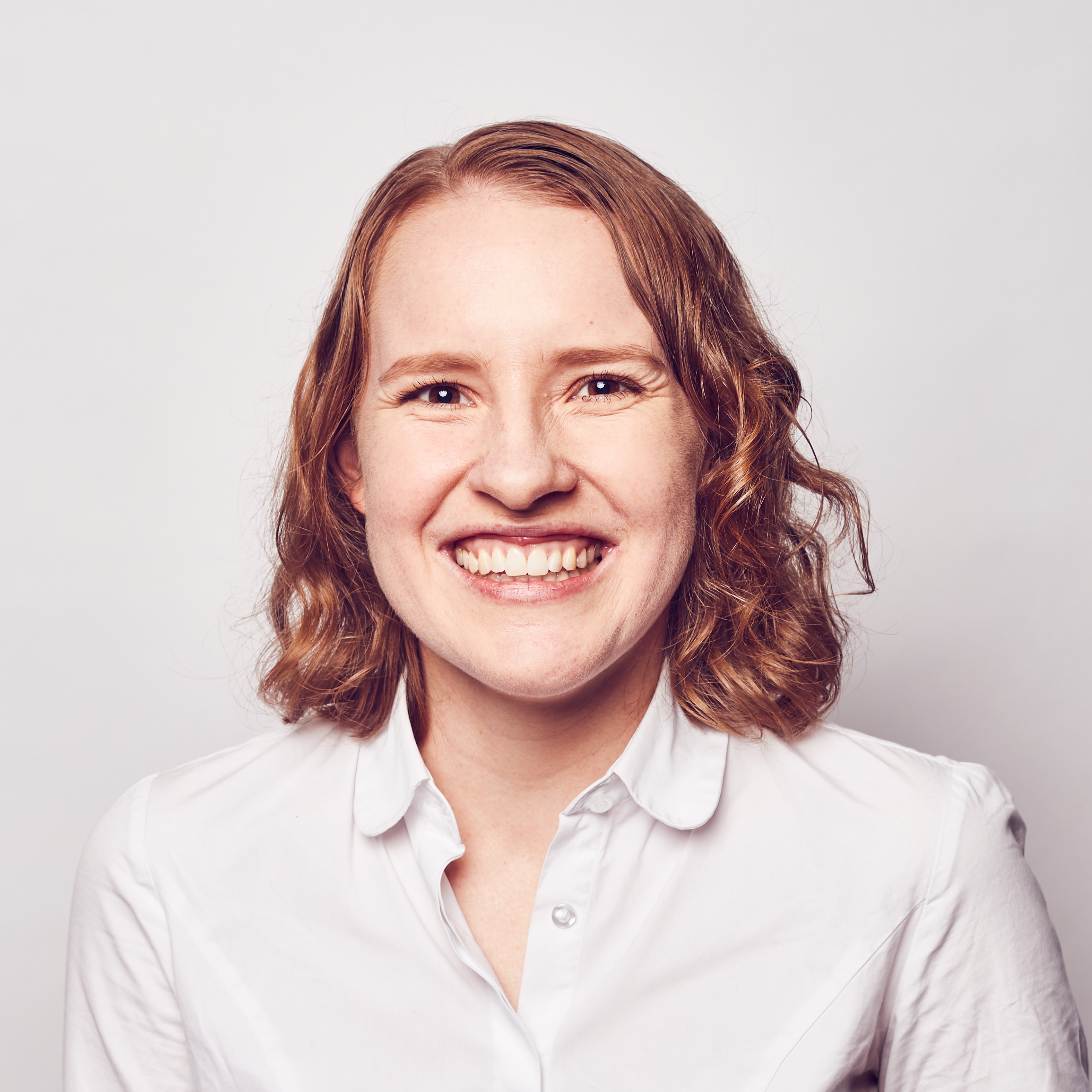 Michelle's presentation draws on the insight that most interpreters do not do any content creation, and that could be part of the reason they struggle to set up a successful business when they first start freelancing.
Michelle's presentation draws on the insight that most interpreters do not do any content creation, and that could be part of the reason they struggle to set up a successful business when they first start freelancing.
Michelle offered practical advice and examples of how interpreters can 'put themselves out there', either in person or online. Online content creation is an excellent way to attract clients and build your network. Whether you use LinkedIn, Instagram, TikTok, Facebook, YouTube or host a podcast, if you create content regularly, you can establish yourself as an expert and get more work.
Key takeaways include: tips for content creation, things to avoid when creating content, examples of successful content creators in the interpreting industry and resources for further reading.
See Michelle's presentation here.
Michelle Deeter holds an MA and DPSI and is a Chinese to English translator and interpreter. Her assignments take her to a variety of venues, including universities, botanical gardens, hospitals and hotels. She also takes on remote interpreting assignments to interpret at various meetings and conferences. As a member of the National Register of Public Service Interpreters, she is experienced in both medical and legal interpreting. Michelle teaches translation and interpreting part-time at Newcastle University.
Dr Diana Singureanu MCIL CL and colleagues from the University of Surrey Centre for Translation Studies - AI and technology
Diana Singureanu and colleagues from the University of Surrey shared leading edge insights on the ‘Pros and Cons of AI and Technology in interpreting’. Their research-informed perspective included how interpreters can be empowered with AI and Automatic Speech Recognition including the effectiveness of Generative AI tools, how it varies, and how that relies heavily on the specific context and the manner in which they are employed.
See their presentation here.
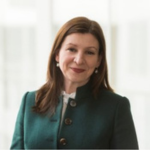 Diana Singureanu is a researcher at the Centre for Translation Studies, University of Surrey. She has studied video-mediated interpreting (VMI) in court settings and helped develop VMI standards and interpreter training through the EU-WEBPSI and EmpASR projects.
Diana Singureanu is a researcher at the Centre for Translation Studies, University of Surrey. She has studied video-mediated interpreting (VMI) in court settings and helped develop VMI standards and interpreter training through the EU-WEBPSI and EmpASR projects.
Diana holds a Masters in Translation Studies, a second Masters in Conference Interpreting and a DPSI Law. She also works as a Conference Interpreter and legal interpreter, is a member of CIOL Council and coordinator of CIOL's Interpreting Division. Recently, she was awarded a Leverhulme Fellowship to explore machine interpreting in legal contexts.
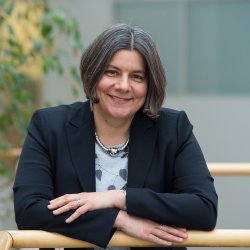 Sabine Braun is Professor of Translation Studies, Director of the Centre for Translation Studies at the University of Surrey and a Co-Director of the Surrey Institute for People-Centred Artificial Intelligence. Her research focuses on socio-technological practices of interpreting and audiovisual translation.
Sabine Braun is Professor of Translation Studies, Director of the Centre for Translation Studies at the University of Surrey and a Co-Director of the Surrey Institute for People-Centred Artificial Intelligence. Her research focuses on socio-technological practices of interpreting and audiovisual translation.
She has led several multi-national research projects on video-mediated interpreting and interpreting in virtual-reality environments (e.g., AVIDICUS 1-3, IVY, EVIVA) and is currently exploring the interaction and integration of human agency and machine intelligence in translation and interpreting to improve language access for linguistic-minority populations and other groups in need of communication support. She was recently a partner in the H2020 project MeMAD, which combined machine learning/AI and human input to explore the creation of semi-automatic descriptions of audiovisual content.
 Constantin Orasan is Professor of Language and Translation Technologies at the Centre of Translation Studies, University of Surrey, UK and Fellow of the Surrey Institute for People-Centred Artificial Intelligence. Before starting this role, he was Reader in Computational Linguistics at the University of Wolverhampton, UK, and the deputy head of the Research Group in Computational Linguistics at the same university.
Constantin Orasan is Professor of Language and Translation Technologies at the Centre of Translation Studies, University of Surrey, UK and Fellow of the Surrey Institute for People-Centred Artificial Intelligence. Before starting this role, he was Reader in Computational Linguistics at the University of Wolverhampton, UK, and the deputy head of the Research Group in Computational Linguistics at the same university.
Constantin has over 25 years of experience in the fields of Natural Language Processing (NLP), Translation Technologies, and Artificial Intelligence. His recent research focuses on the use of AI tools to support translators and interpreters. Constantin is currently leading EmpASR, an AHRC funded project focused on training interpreters on how to benefit from the latest developments in automatic speech recognition. His research is well known as a result of over 140 peer-reviewed articles in journals, books and international conferences. More information about him can be found at https://dinel.org.uk/
Katie Santos FCIL CL - Interpreting and beyond: Unlocking a portfolio career with languages
 What other skills do you need to expand your career? Could you upskill in the world of education, tourism and accessibility/EDI? How about using your advanced linguistic skills to create materials, write articles, produce videos, record podcasts, become a public speaker/tutor, host international students – the possibilities are endless. Katie's talk was full of inspiration!
What other skills do you need to expand your career? Could you upskill in the world of education, tourism and accessibility/EDI? How about using your advanced linguistic skills to create materials, write articles, produce videos, record podcasts, become a public speaker/tutor, host international students – the possibilities are endless. Katie's talk was full of inspiration!
See Katie's presentation here.
Katie Santos studied Languages & Literature at the universities of Coimbra, Grenoble, and Southampton. She is a qualified interpreter, FCIL CL, FITI, and is on the National Register of Public Service Interpreters. Besides interpreting, Katie has taught Portuguese, Translation and Interpreting at the Universities of Portsmouth, Bristol, Surrey and Southampton. In 2014, after intensive training, Katie became a Green Badge tourist guide in English and Portuguese with the Institute of Tourist Guiding. And also a T-Guide with FEG in 2022. She has combined her love for languages, teaching and travelling by setting up Oak Tree Tours.
Expert Panels
Two panels covered the current context in UK Public Service Interpreting and the wider opportunities for the 'spoken word' work.
The PSI Panel highlighted the importance of:
1. Standards, qualifications and professionalism – Clear standards, unambiguous qualification requirements and recognition of the professional status of public service interpreters. All the panellist agreed the appropriate qualifications and demonstration of professionalism should always be at the forefront of the selection and delivery of public service language provision.
2. Fair rates of pay – Fair rates and working conditions for interpreters were highlighted as both a right and a necessity.
3. Public safety, public benefit and public good – All the panellists also agreed that properly qualified and paid interpreters protect the public and support better delivery of public services. Interpreters are essential to justice, health and local government and the public good.
Sara Robertson, Chief Executive of ITI, explained the main events and contributions made to the House of Lords Inquiry into Court Interpreting and Translation and Mike Orlov underlined the importance of an independent regulator and register like NRPSI, and looked forward to what 2025 may hold. Sue Leschen underscored the importance and value of public service interpreters and the need for greater professional recognition, proper support and fair remuneration.
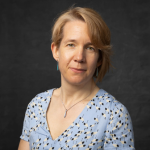
Sara Robertson is Chief Executive of the Institute of Translation and Interpreting (ITI) and Chair of Historic Buildings & Places (HB&P).
Sara is committed to working towards a world where every word is understood, and where language is never a barrier.
 Mike Orlov, Executive Director of the National Register of Public Service Interpreters (NRPSI) talks about lessons from the past, and priorities for now and the future for public service interpreting.
Mike Orlov, Executive Director of the National Register of Public Service Interpreters (NRPSI) talks about lessons from the past, and priorities for now and the future for public service interpreting.
A Fellow of the Institute of Leadership and Management (FInstLM), consultant, facilitator, mentor, business coach, trainer, public speaker as well being a published business writer, Mike is passionate about the role of professional public service interpreting and translating and is committed to lobbying and advocating for greater recognition, awareness and appreciation of language-service professionals serving the public and the public-sector in the UK.
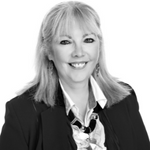
Sue Leschen is a well known speaker, writer, trainer and public service interpreter and former CIOL Council member. Sue is a well-known entrepreneurial lawyer/linguist who has married her twin passions of law and languages together. She is the Director of Avocate Legal and Business French Interpreting and Translation Services Ltd www.avocate.co.uk. Avocate also provides mentoring in business skills, legal terminology and legal and business English to language professionals.
Sue is a Fellow of The Chartered Institute of Linguists (CIOL), a Fellow of The Institute of Translation and Interpreting (ITI), a member of the Association of Interpreters and Translators (AIT) and also of the National Register of Public Service Interpreters (NRPSI). She holds Chartered Linguist (Interpreter) status.
The Future of the Spoken Word Panel summarised the day, noting that spoken word work is very different in the public and private sectors and in the UK vs Europe. In UK public services the problems are pay, conditions and contracts; in the private sector and in conference interpreting there is more technology now coming into play, and panellists are seeing more AI creeping in, notably at big European conferences.
The panellists all said that there are clients out there who place a high value on the spoken word, but reaching them and getting this work is not always easy depending on your languages. One way they do this is through specialisation and building portfolios. Each of the panellists specialises and focuses: examples include focusing in on UK Court and Police work or building a portfolio around a specialism, as two of the panellists do, with veterinary work and robotics, for example.
The panel also heard from the audience about the genuine trauma interpreters can experience in public service work - notably in Police and Court work and in health settings, with difficult diagnoses and families in great pain or suffering violence or loss. These are topics we want to return to and to offer more support on.
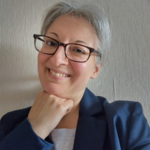
Anita van Adelsbergen is an experienced translator, conference interpreter, writer and speaker from the Netherlands. In her native country, alongside her career as a linguist, she has worked as an equestrian journalist and TV commentator for international broadcasters, including the Dutch national broadcaster NOS.
Anita was born into an international Dutch-Pakistani family and grew up speaking four languages. She works mainly with direct clients and specialises in assignments related to dogs and horses, yoga and ayurveda. Anita is a Chartered Linguist, a Vice Chair of CIOL Council and Chair of the ED & I committee.
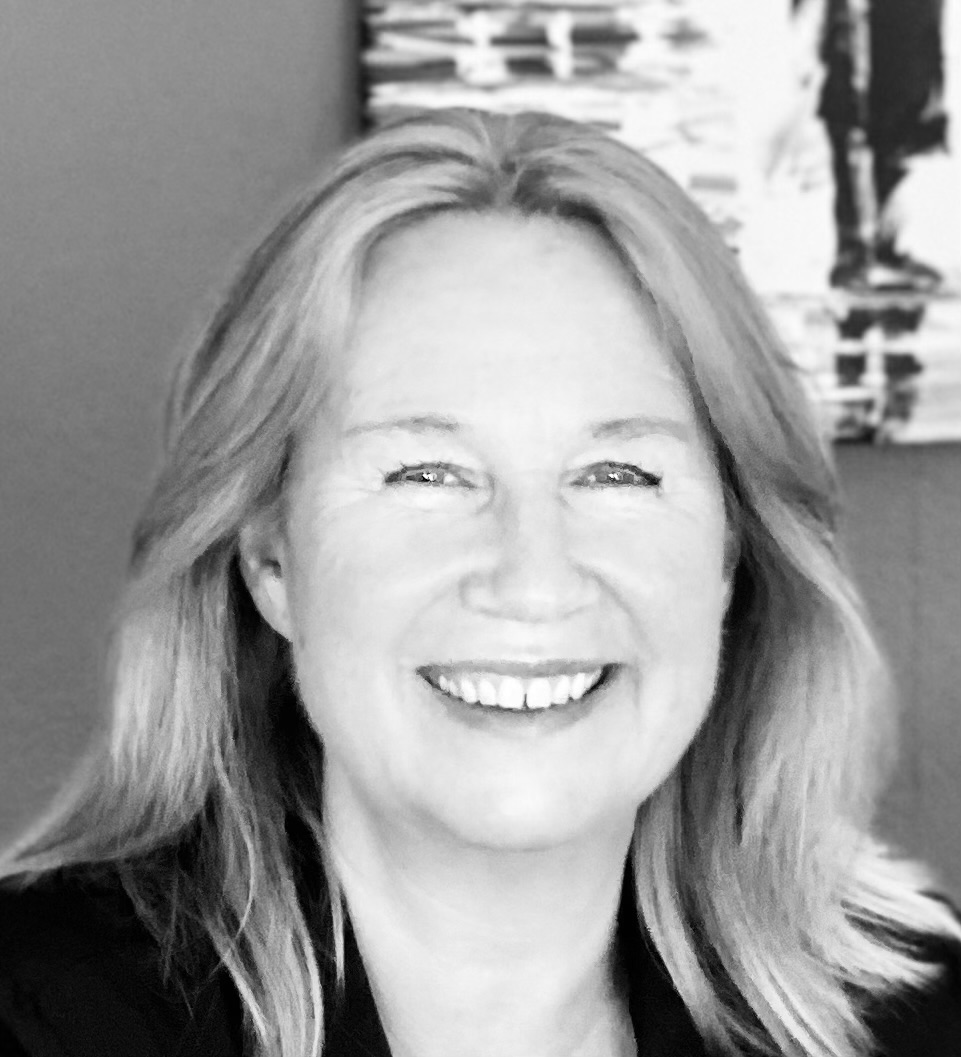 Helle Gulowsen is an experienced freelance interpreter and translator, and is the founder/director of Converto Translations. She works extensively with the HM Courts & Tribunals Service as well as the Metropolitan Police Service and other UK police forces and law enforcement agencies, and she also delivers services across the Norwegian and British shipping, energy, technology, and hospitality sectors.
Helle Gulowsen is an experienced freelance interpreter and translator, and is the founder/director of Converto Translations. She works extensively with the HM Courts & Tribunals Service as well as the Metropolitan Police Service and other UK police forces and law enforcement agencies, and she also delivers services across the Norwegian and British shipping, energy, technology, and hospitality sectors.
A Vice Chair of CIOL Council, Helle is a NRPSI rare-language registrant, a Chartered Translator, and a sworn translator in her native Norway. She holds a Diploma in Translation from CIOL and a degree in Hotel Management and Administration from Switzerland. She is also a Teaching Fellow at University College London (MSc in Specialised Translations).
 Steve Doswell is an experienced linguist and corporate communication practitioner with extensive experience spanning energy, power engineering, robotics, financial services and higher education.
Steve Doswell is an experienced linguist and corporate communication practitioner with extensive experience spanning energy, power engineering, robotics, financial services and higher education.
Chair of CIOL Council, he uses his spoken word skills widely in his work with European bodies having become a CIOL member in the 1990s after completing the Final Diploma in Spanish. He has been President of FEIEA, the European Association of Internal Communication and CEO of the UK’s Institute of Internal Communication (IoIC).
Presentations from CIOL Interpreters Day 2024 are available here



